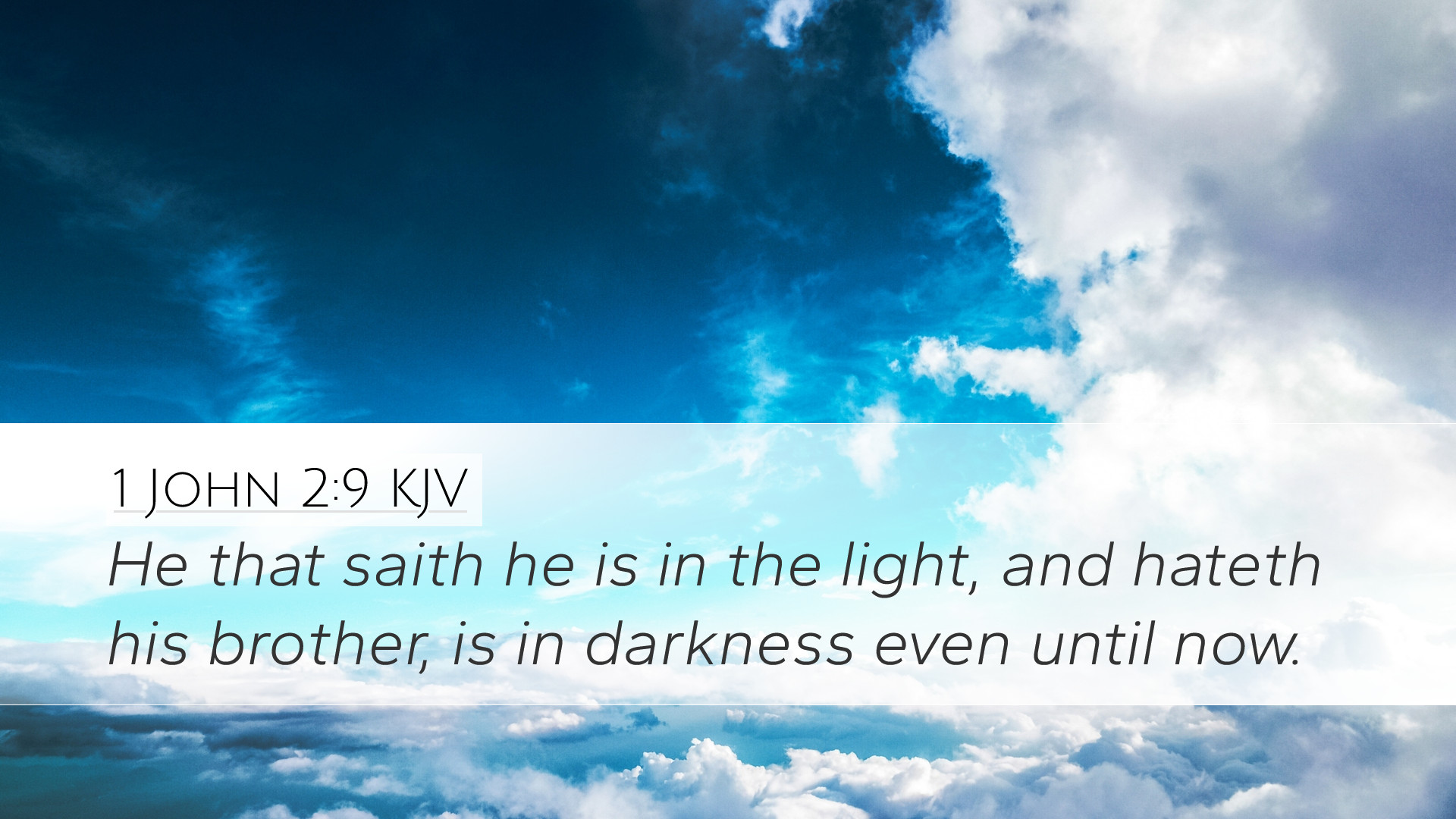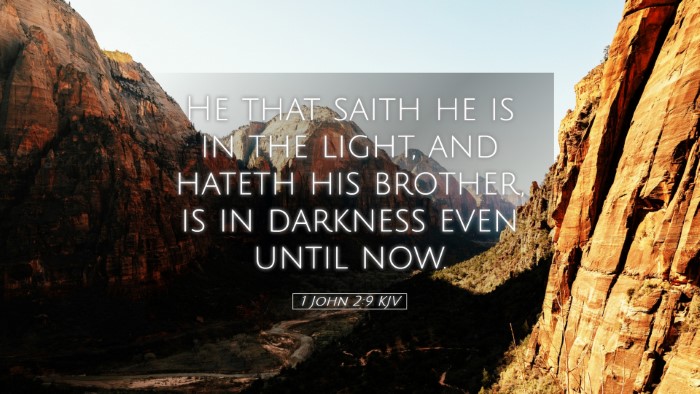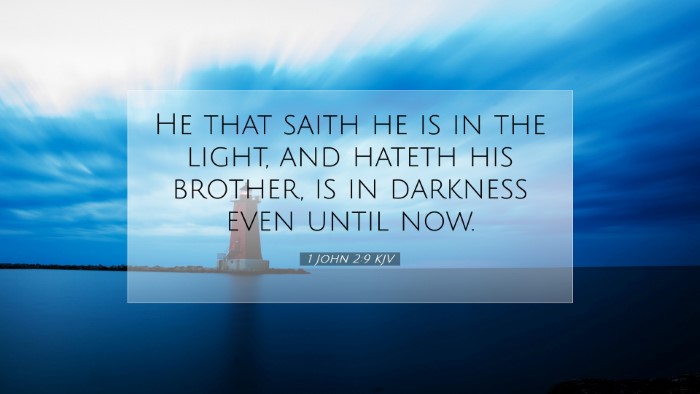Commentary on 1 John 2:9
Verse (1 John 2:9): "He who says he is in the light and hates his brother is in darkness until now."
Introduction
The epistle of 1 John addresses the community of believers, emphasizing the importance of love and the moral implications of faith. In this verse, John draws a sharp contrast between light and darkness, signifying the moral states that characterize believers and those who are in spiritual error.
Exegesis of the Verse
Contextual Analysis: This verse is situated within a broader discussion on the nature of true fellowship with God. John articulates a fundamental ethical standard: love. The claim to be in the light, which represents truth, righteousness, and fellowship with God, is juxtaposed with the reality of hatred, which denotes moral and spiritual darkness.
The Meaning of "Light" and "Darkness"
Light: In Johannine theology, "light" symbolizes purity, truth, and the presence of God. It indicates a life governed by divine truth and love.
Darkness: Conversely, "darkness" connotes ignorance, moral failure, and separation from God. John clearly states that those who harbor hate are not walking in the light, thus revealing a deceptive claim of spiritual status.
Insights from Public Domain Commentaries
Matthew Henry's Commentary
Matthew Henry emphasizes that the assertion of being in the light, while simultaneously harboring hate, reveals a contradiction. He notes that true love for God manifests in love for others. If a believer hates his brother, it is a clear indication that he is deceived about his spiritual condition. Henry warns that professing faith without love results in spiritual blindness.
- True Fellowship: Henry elucidates that genuine fellowship with God must produce love for others, as love is the greatest commandment.
- The Danger of Deception: He points out that many may deceive themselves into thinking they are close to God when, in fact, their hearts are filled with malice.
Albert Barnes' Notes
Albert Barnes interprets this passage through the lens of practical Christianity. He asserts that one cannot claim to be a follower of Christ while acting contrary to His teachings on love. Barnes makes a poignant observation that hatred towards others is an indication of spiritual deficiency.
- Practical Application: He urges believers to examine their hearts and relationships with others, pointing out that anger and hatred are incompatible with the path of light.
- Ethical Implications: The ethical standards set forth by John necessitate a realignment of behavior with one's professed beliefs.
Adam Clarke's Commentary
Adam Clarke offers a rich theological perspective on the significance of love as a hallmark of Christian identity. He emphasizes that the term "brother" should be understood broadly, encompassing all humanity, not just fellow believers.
- The Universality of Love: Clarke suggests that the call to love is a comprehensive mandate that transcends boundaries, reflective of God's unconditional love for humanity.
- Spiritual Consequences: He warns that remaining in hate not only distances one from God but can lead to a greater darkness, illustrating the loss of spiritual insight and guidance.
Theological Implications
1 John 2:9 serves as a core teaching on the nature of Christian love. It confronts believers with the reality that genuine faith is evidenced by love, not merely by verbal assertions of faith. This passage encourages deep reflection on the nature of one’s relationships within the community of faith.
Conclusion
In summary, 1 John 2:9 invites believers to evaluate their inner spiritual lives against the litmus test of love. The harmony between one's profession of faith and the practice of love is essential for walking in the light. As this commentary reveals, to be a true follower of Jesus is to embody His love towards all people, dispelling the darkness of hatred and living in the transformative light of God's grace.


